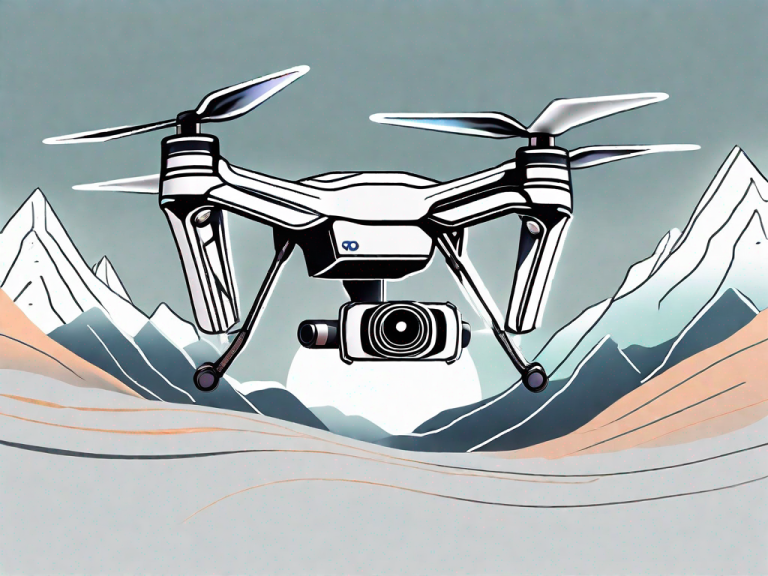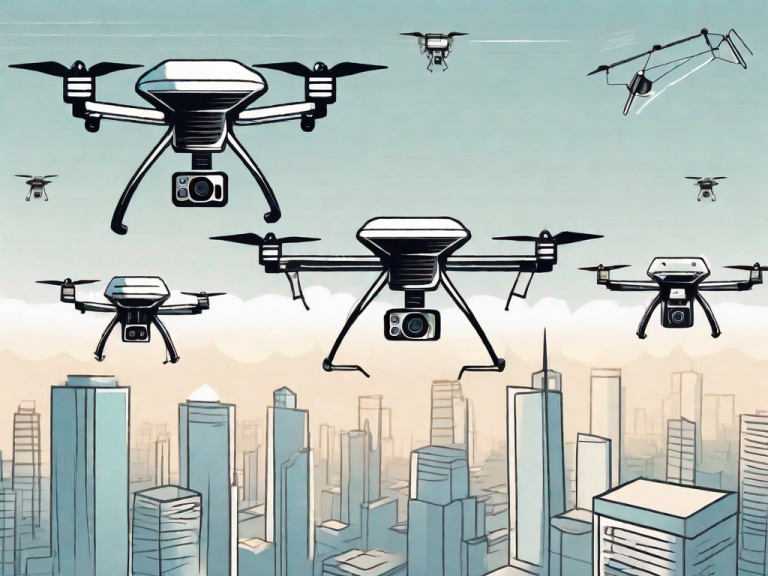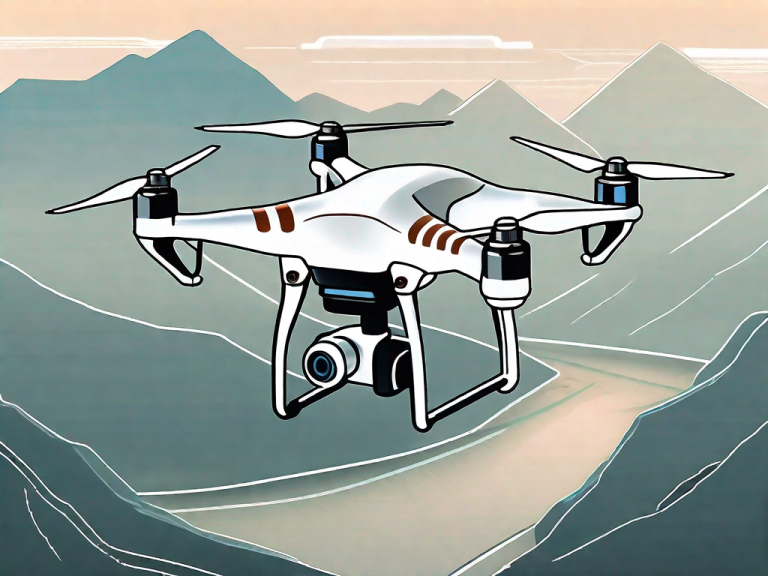If you’re a car enthusiast or someone who spends a lot of time on the road, you know how annoying exhaust drone can be. That constant, low-frequency noise can really ruin your driving experience. But don’t worry, there is a solution – the right muffler can significantly reduce drone and make your journey much more enjoyable. In this article, we will explore the science behind exhaust drone, discuss the key features of a good muffler, and recommend some top brands that excel in reducing drone. So let’s dive in and find the best muffler to enhance your driving pleasure!
Understanding Drone in Vehicles
Before we delve into finding the best muffler to reduce drone, it’s important to understand what exactly drone is and how it affects your driving experience. Drone is a low-pitched, resonant sound that is produced by the engine and exhaust system of your vehicle. It usually occurs at a specific RPM range and can be quite bothersome, especially during long drives or highway cruising.
So why does drone happen? Well, the science behind it is quite fascinating. When the exhaust gas travels through the exhaust system, it encounters different obstacles and changes in pressure, causing sound waves to bounce back and forth. These sound waves can interfere with each other, resulting in that annoying drone noise. The key to reducing drone lies in muffler design and materials used, which we will discuss later in this article.
Now, let’s dive deeper into the science behind drone. The phenomenon of sound waves bouncing back and forth is known as resonance. Resonance occurs when an object is subjected to an external force that matches its natural frequency. In the case of a vehicle’s exhaust system, the sound waves produced by the engine create vibrations that resonate with certain components of the exhaust system, amplifying the sound and causing drone.
Imagine a musical instrument, such as a guitar. When you pluck a string, it vibrates at a specific frequency, producing a particular note. If you place another guitar string nearby that has the same natural frequency, it will also start vibrating, producing the same note. This is because the second string is resonating with the vibrations of the first string. The same principle applies to the exhaust system of a vehicle.
Now, let’s talk about the factors that contribute to drone. One of the main factors is the design of the muffler. The muffler is responsible for reducing the noise produced by the engine and exhaust system. It achieves this by using various chambers, baffles, and sound-absorbing materials. However, if the design of the muffler is not optimized for reducing drone, it can actually amplify the sound waves and make the drone worse.
Another factor that affects drone is the materials used in the construction of the exhaust system. Different materials have different acoustic properties, which can either help reduce drone or exacerbate it. For example, some mufflers are made of stainless steel, which has excellent sound-dampening properties. On the other hand, mufflers made of aluminum or other lightweight materials may not provide the same level of noise reduction.
Furthermore, the length and diameter of the exhaust pipes can also influence drone. The size of the pipes affects the flow of exhaust gases and can impact the resonance frequency of the system. By carefully selecting the dimensions of the pipes, manufacturers can minimize drone and create a more pleasant driving experience.
It’s worth noting that drone is not always a bad thing. In some cases, it can be desirable, especially for performance-oriented vehicles. Drone can give a deep, aggressive tone to the exhaust note, enhancing the overall driving experience. However, for daily drivers or those seeking a quieter ride, reducing drone is a top priority.
In conclusion, understanding the science behind drone in vehicles is crucial for finding effective solutions to reduce it. Factors such as muffler design, materials used, and exhaust pipe dimensions all play a role in minimizing drone and creating a more enjoyable driving experience. In the next section, we will explore different muffler options and discuss their effectiveness in reducing drone.
The Science Behind Exhaust Drone
To understand how a muffler reduces drone, let’s take a closer look at its internal structure. A muffler consists of chambers, baffles, and perforated tubes. These components work together to disrupt the sound waves and reduce their intensity.
When the exhaust gas enters the muffler, it is directed through chambers and baffles. These chambers are carefully designed to create turbulence within the exhaust flow. As the gas passes through these chambers, the sound waves generated by the engine are forced to bounce off the walls of the muffler. This bouncing action causes the sound waves to cancel each other out, effectively reducing the overall noise level.
In addition to the chambers, the muffler also contains baffles. Baffles are plates or tubes that are strategically placed inside the muffler to further disrupt the sound waves. These baffles create additional turbulence and reflection points for the sound waves, helping to minimize their intensity. By carefully positioning the baffles, muffler manufacturers can fine-tune the sound-canceling effect and achieve the desired level of noise reduction.
Furthermore, the perforated tubes in the muffler play a crucial role in dampening the noise. These tubes are designed with small holes or perforations that allow the exhaust gas to pass through. As the gas flows through these perforations, the sound waves are diffused and scattered, reducing their overall intensity. This diffusion effect helps to further muffle the exhaust noise and provide a quieter driving experience.
While it may seem complicated, the key takeaway is that the internal structure of the muffler plays a crucial role in reducing drone. By strategically designing the chambers, baffles, and perforated tubes, muffler manufacturers can effectively minimize the intensity of the sound waves and provide a quieter driving experience.
Moreover, mufflers are not only designed to reduce exhaust drone but also to optimize engine performance. The internal structure of the muffler is carefully engineered to balance noise reduction with exhaust flow efficiency. Too much restriction in the exhaust flow can negatively impact engine performance, resulting in reduced power and efficiency. Therefore, muffler manufacturers employ advanced design techniques to strike the right balance between noise reduction and optimal engine performance.
Additionally, mufflers are often constructed using sound-absorbing materials to further enhance their noise-reducing capabilities. These materials, such as fiberglass or steel wool, are strategically placed within the muffler to absorb and dissipate sound energy. By incorporating sound-absorbing materials, muffler manufacturers can effectively reduce the transmission of noise from the exhaust system to the surrounding environment.
It is also worth noting that different types of mufflers, such as chambered mufflers, straight-through mufflers, or resonator mufflers, employ varying internal structures to achieve different sound characteristics. For example, chambered mufflers utilize multiple chambers and baffles to create a deep, throaty exhaust note, while straight-through mufflers allow for a more aggressive and high-performance sound.
In conclusion, the science behind exhaust drone reduction involves the careful design and arrangement of chambers, baffles, and perforated tubes within the muffler. These components work together to disrupt and cancel out sound waves, minimizing their intensity and providing a quieter driving experience. Muffler manufacturers also consider factors such as engine performance, sound-absorbing materials, and different muffler types to achieve the desired sound characteristics while maintaining optimal engine efficiency.
How Drone Affects Your Driving Experience
Now that we know what exhaust drone is and how it occurs, let’s explore how it can impact your overall driving experience. First and foremost, drone can be incredibly annoying and fatiguing, especially during long drives. The constant low-frequency noise can cause discomfort and make your journey less enjoyable.
Furthermore, drone can also affect your ability to hear other important sounds while driving, such as sirens, horns, or even conversations with passengers. The constant noise can create a sensory overload and hinder your situational awareness on the road. Therefore, reducing drone not only enhances your comfort but also improves your safety on the road.
Key Features of a Good Muffler
When searching for the best muffler to reduce drone, there are several key features you should consider. These features will ensure that you get the maximum noise reduction capabilities and a durable product that will last for years to come.
Noise Reduction Capabilities
Of course, the primary purpose of a muffler is to reduce noise. Look for a muffler that has been specifically designed to minimize drone. Pay attention to the manufacturer’s claims regarding noise reduction and read customer reviews to get a sense of how effective the muffler is in practice.
Keep in mind that not all mufflers are created equal when it comes to noise reduction. Some may excel in reducing drone at specific RPM ranges, while others may provide a broader reduction across the entire RPM range. Consider your driving habits and the RPM range where you experience the most drone to find a muffler that suits your needs.
Material and Durability
Another important factor to consider is the material and durability of the muffler. Opt for mufflers made from high-quality materials such as stainless steel or aluminized steel, as they offer better resistance to corrosion and can withstand high temperatures.
Additionally, a well-built muffler with solid construction will last longer and provide better performance. Look for mufflers that are backed by warranties to ensure that you’re investing in a reliable product.
Installation and Fit
Lastly, consider the ease of installation and the compatibility of the muffler with your vehicle. Look for mufflers that are designed to fit your specific make and model to ensure a seamless installation process. Some mufflers may require professional installation, while others can be easily installed with basic tools. Consider your DIY skills and the complexity of the installation before making a purchase.
Top Muffler Brands for Reducing Drone
Now that we have a good understanding of what to look for in a muffler, let’s explore some top brands that excel in reducing drone. These brands have established a reputation for producing high-quality mufflers that deliver excellent noise reduction capabilities.
Brand A: Strengths and Weaknesses
Brand A is known for its innovative muffler designs that effectively reduce drone. Their mufflers are designed to provide a perfect balance between performance and noise reduction. They utilize advanced technology and high-quality materials to ensure superior sound dampening capabilities.
However, one drawback of Brand A mufflers is their higher price tag compared to other options in the market. If budget is a concern, you may need to explore more affordable alternatives.
Brand B: Strengths and Weaknesses
Brand B has earned a solid reputation for producing mufflers that are specifically designed to minimize drone. Their mufflers use a combination of chambered and perforated tube designs to effectively cancel out unwanted noise.
One potential weakness of Brand B mufflers is that they may not offer as broad of a reduction across the entire RPM range compared to some other brands. However, if you primarily experience drone at specific RPM ranges, Brand B mufflers can be a great option.
The Role of Muffler Design in Drone Reduction
Now that we have explored the top brands for reducing drone, let’s dive deeper into the different muffler designs and how they contribute to noise reduction. Understanding the various muffler designs will help you make an informed decision when choosing the best muffler to reduce drone.
Straight-Through Mufflers
Straight-through mufflers, as the name suggests, allow the exhaust gas to flow straight through the muffler without many obstructions. These mufflers utilize perforated tubes and sound-absorbing materials to reduce noise. They are known for their minimal backpressure, which can enhance engine performance.
Straight-through mufflers are a popular choice among performance enthusiasts who want to reduce drone while maintaining power and efficiency. They provide a deep, aggressive exhaust note and offer excellent drone reduction capabilities, especially at lower RPM ranges.
Chambered Mufflers
Chambered mufflers, also known as multi-chamber mufflers, use multiple chambers and baffles to reduce noise. The exhaust gas is directed through these chambers, creating turbulence and causing the sound waves to cancel each other out. Chambered mufflers provide a milder exhaust note compared to straight-through mufflers.
Chambered mufflers are known for their broad reduction across the entire RPM range. They excel in reducing drone at higher RPM ranges where straight-through mufflers may struggle. If you regularly drive at higher RPMs or experience drone in a wider RPM range, chambered mufflers can be a great choice.
Turbo Mufflers
Turbo mufflers are designed to mimic the sound-dampening effects of turbochargers. They utilize baffles and chambers to redirect and control the flow of exhaust gases, reducing noise in the process. Turbo mufflers provide a deeper exhaust tone and are favored by car enthusiasts who want a more aggressive sound.
These mufflers offer excellent noise reduction capabilities and are particularly effective at reducing drone at mid-range RPMs. If you’re looking for a muffler that provides a sporty exhaust note while minimizing drone, turbo mufflers should be on your radar.
Maintaining Your Muffler for Optimal Performance
Once you’ve installed the perfect muffler to reduce drone, it’s important to properly maintain it to ensure optimal performance. Here are a few maintenance tips to keep in mind:
Regular Inspection and Cleaning
Inspect your muffler regularly for signs of damage or rust. Check for any loose connections or leaks. Cleaning the exterior of the muffler with soap and water can help remove any built-up dirt or grime.
When to Consider Muffler Replacement
If you notice a significant decrease in noise reduction capabilities or hear any strange noises coming from your muffler, it may be time for a replacement. Consult with a professional mechanic to determine the best course of action.
Final Thoughts on Choosing the Best Muffler to Reduce Drone
Choosing the best muffler to reduce drone is a personal decision that depends on your driving preferences and specific requirements. Consider the key features, different muffler designs, and reputable brands to find a muffler that suits your needs and budget.
Remember to prioritize noise reduction capabilities, material and durability, and ease of installation, as these factors will determine the performance and longevity of your muffler.
Investing in a high-quality muffler will not only enhance your driving experience by reducing drone but also ensure that you enjoy a smoother and quieter ride for years to come.
FAQs
1. How does a muffler reduce drone in a vehicle?
A muffler reduces drone by utilizing internal structures such as chambers, baffles, and perforated tubes to disrupt and cancel out sound waves produced by the engine and exhaust system.
2. Can any muffler reduce drone?
Not all mufflers are designed to reduce drone. Look for mufflers specifically designed to minimize drone and consider factors such as noise reduction capabilities, material and durability, and compatibility with your vehicle.
3. Do straight-through mufflers provide the best drone reduction?
Straight-through mufflers are known for their excellent drone reduction capabilities, especially at lower RPM ranges. However, the best muffler design for drone reduction depends on your driving habits and the RPM range where you experience the most drone.
4. Are all top muffler brands equally effective in reducing drone?
While top muffler brands are known for their quality and performance, the effectiveness of each brand in reducing drone can vary. Consider reading customer reviews and understanding the specific claims of each brand to find the one that best suits your needs.
5. Can a muffler improve the overall driving experience?
Absolutely! By reducing drone, a muffler can significantly improve the overall driving experience by minimizing noise and enhancing comfort. It can also improve safety by allowing you to hear other important sounds on the road.
6. How often should I inspect my muffler?
It’s a good practice to inspect your muffler regularly, especially if you frequently drive in harsh conditions. Check for any signs of damage, rust, or loose connections. It’s also important to clean the exterior of the muffler to remove any built-up dirt or grime.
7. When should I consider replacing my muffler?
If you notice a significant decrease in noise reduction capabilities or hear any strange noises coming from your muffler, it’s a sign that you may need to replace it. Consult with a professional mechanic to determine the best course of action.
Table 1: Top Muffler Brands for Reducing Drone
| Brand | Strengths | Weaknesses |
|---|---|---|
| Brand A | Innovative designs, superior sound dampening capabilities, balance between performance and noise reduction | Higher price range |
| Brand B | Specifically designed to minimize drone, chambered and perforated tube designs, broad reduction across RPM range | May not offer as broad reduction across RPM range compared to some other brands |
Table 2: Muffler Designs and Their Drone Reduction Capabilities
| Muffler Design | Drone Reduction Capabilities |
|---|---|
| Straight-Through Mufflers | Excellent at reducing drone, especially at lower RPM ranges |
| Chambered Mufflers | Offer a broad reduction across the entire RPM range, particularly effective at higher RPMs |
| Turbo Mufflers | Provide a deep and aggressive exhaust note, effective at reducing drone at mid-range RPMs |









